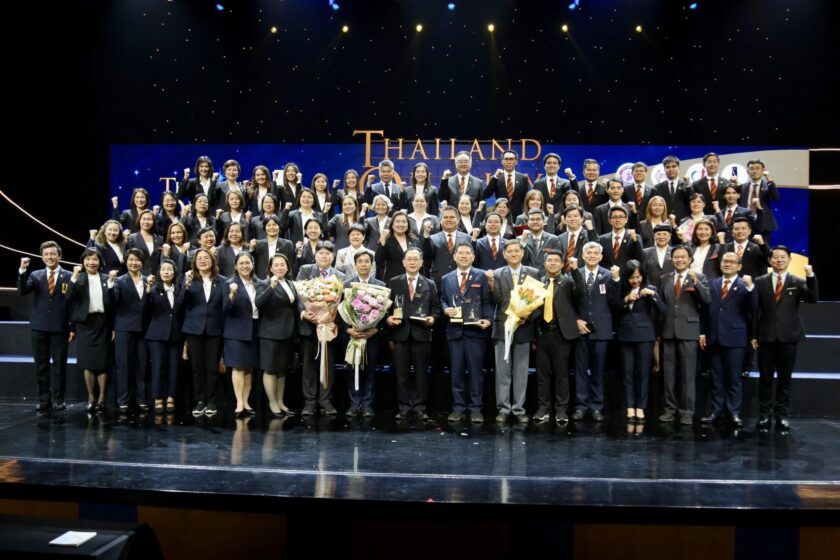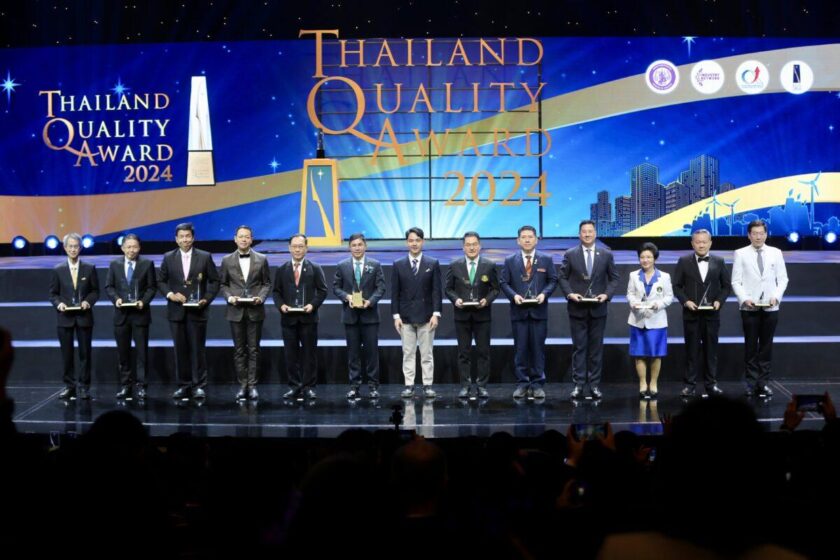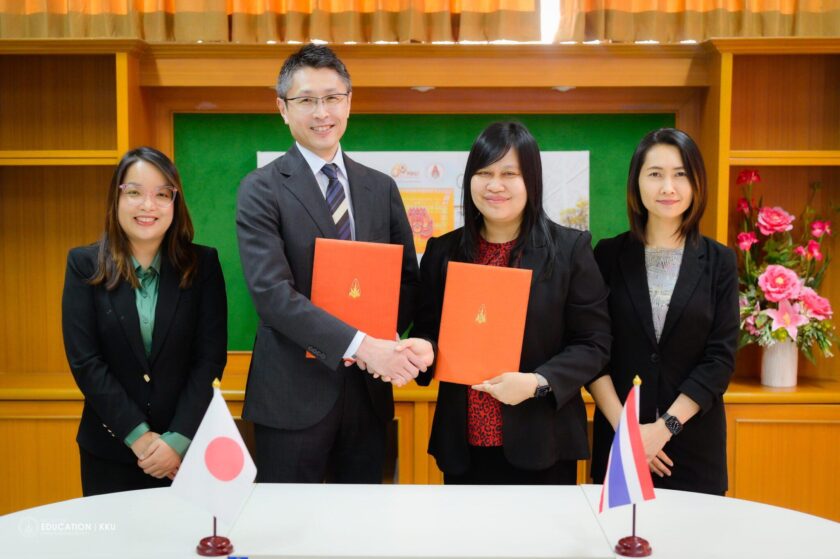KKU researcher is conferred an excellent research award by TSRI for its health and economic potentials.
On June 25, 2019, Professor Dr. Monchai Duangchinda, a vice president for research and academic service, was given an excellent commercial research award. The excellent research award is given annually by the department of Thailand Science Research and Innovation (TSRI). The ceremony held on Tuesday was chaired by Dr. Krisanapong Kiratikorn, an executive director of Thailand Research Fund and head of the establishment of national strategy and development. The objective of the program was reported by Professor Sutthipan Jitpimolmart (M.D), a director of Thailand Science Research and Innovation (TSRI). The event held at The Intercontinental Bangkok was well participated by about 300 guests.
The Professor Sutthipan Jitpimolmart (M.D), a director of Thailand Science Research and Innovation (TSRI), said his office is responsible for a) setting strategy for research and innovation development, and b) promoting research findings for commercial gain. This event is held partially to present to the public how research findings are used for concrete community development.
Professor Dr. Monchai Duangchinda, a vice president for research and academic service and recipient of TSRI’s best commercial research award, said his research was inspired by the attempt to reduce the rate of the prevailing gout disease. Specifically, the research was aimed to inhibit the emergence of gout after chicken consumption. Under TSRI subsidy, his team was able to develop KKU ONE chicken which is the outcome of the cross-breeding of local chicken, known well for its stiffness, and the commercialized chicken that gives soft and more tender chicken meat. The new breed satisfies an ideal requirement of chicken taste. Moreover, a laboratory test with Synchrotron Light shows that KKU ONE contains lower uric content than the amount observed in the chicken raised under the conventional method, which the chicken food contains high level of purine. Lower uric content is crucial for the emergence of gout. KKU ONE has low content of internal fat, high level of easily digested protein, and low bad cholesterols that can cause heart disease. Due to these health supportive qualifications, KKU ONE has been promoted for commercial scale production. At the present, KKU ONE has been sold at international markets and in the middle east. For domestic consumption, KKU ONE is appointed as “public chicken” which is sold at Food Land’s papaya salad shop. The chicken is promoted for the farmers in 20 districts with the price guaranteed at a rate of 20 baht per kilo. The chicken only takes 35 days to be full raised without air conditioners. Raising KKU ONE chicken can guarantee an income of at least ten thousand baht for the farmers. The KKU ONE demand remains high at about five thousand chickens per week, the present KKU ONE farming is not yet capable for meeting that demand at the present, which means that the KKU ONE farming needs to be expanded. Since the first time that KKU ONE was promoted to the farmers, there has been no record of deficiency among the chicken raisers.
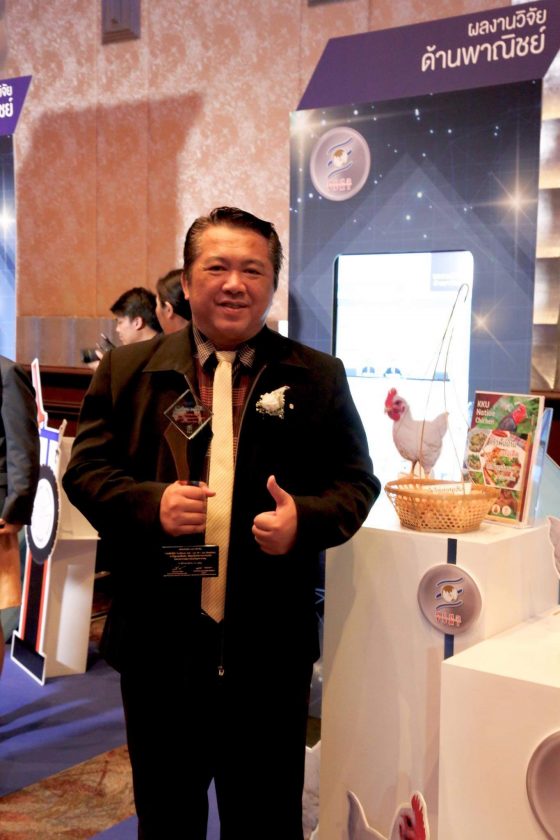
Acting Vice President for Research and Academic Services
The researcher estimates that five million KKU ONE chickens, with the estimated sell of 200 million baht, will be needed in the next five years. Raising this chicken is going to promote Thai economy and the health of Thai people. With the controlled breeding system, uric acid content in KKU ONE chicken is going to be lessened in the future.
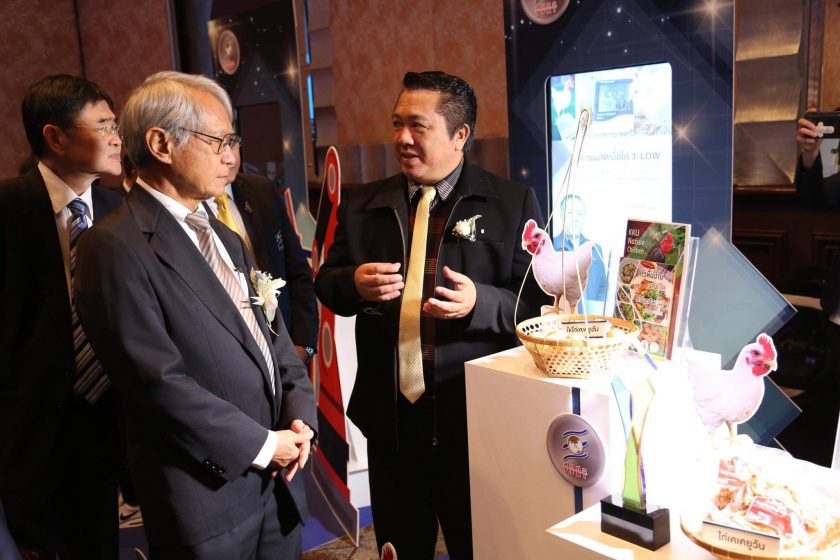
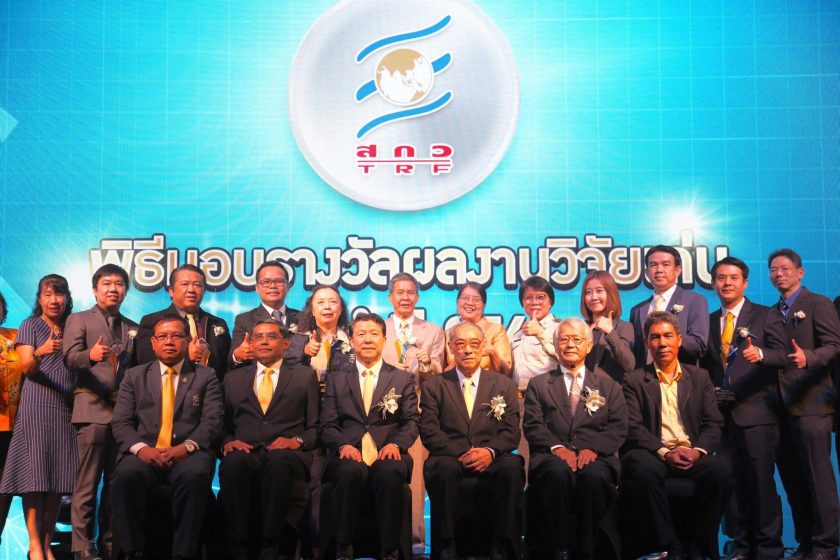
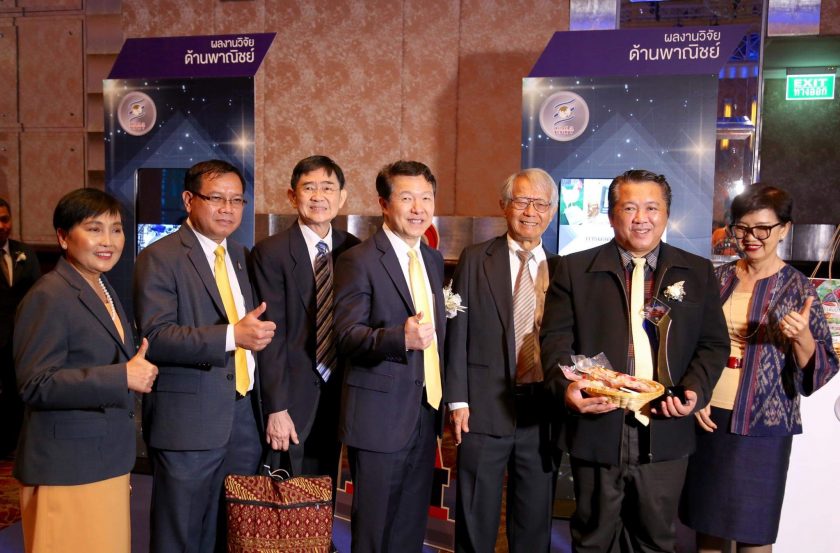
[ Thai ]


